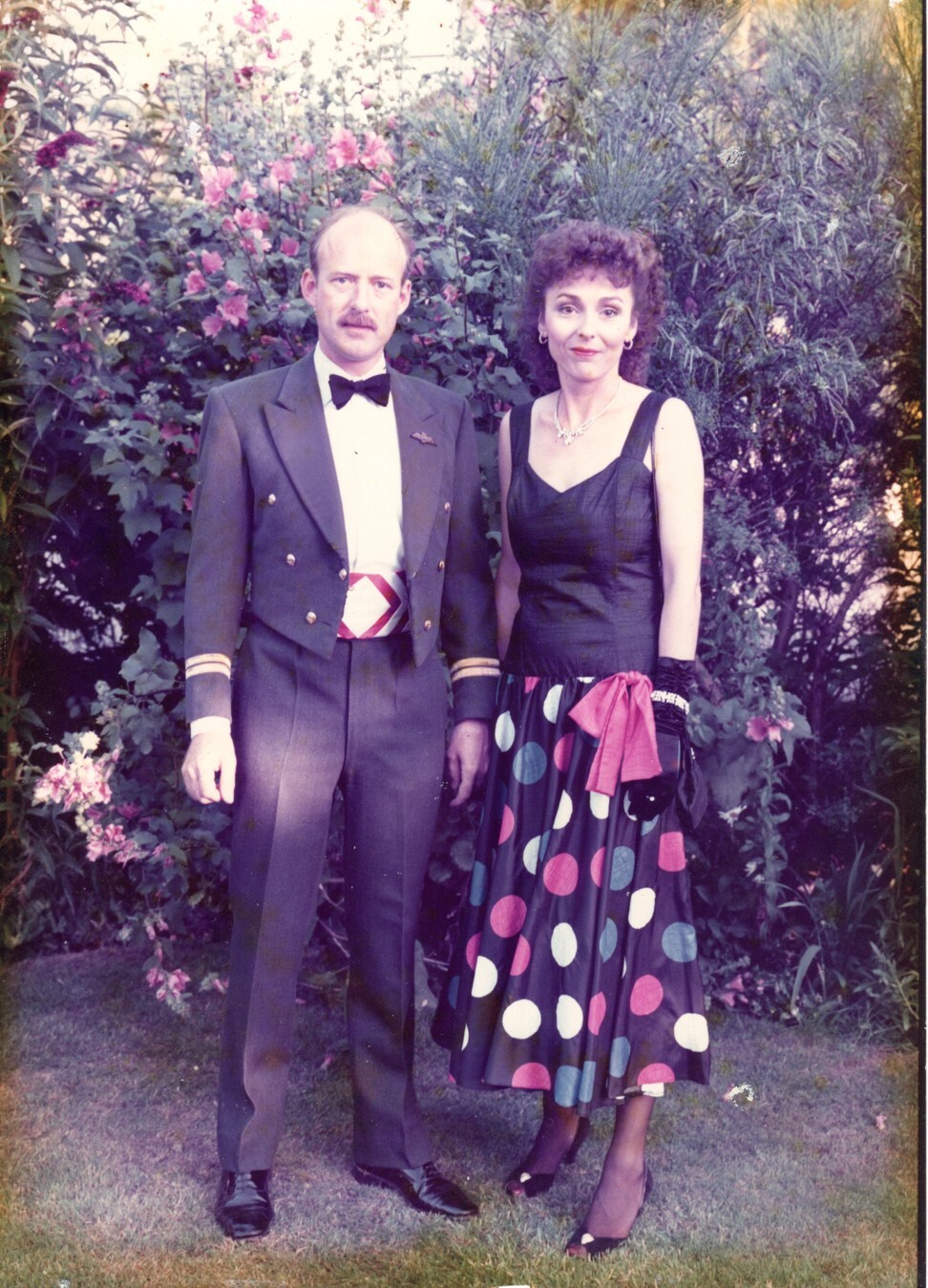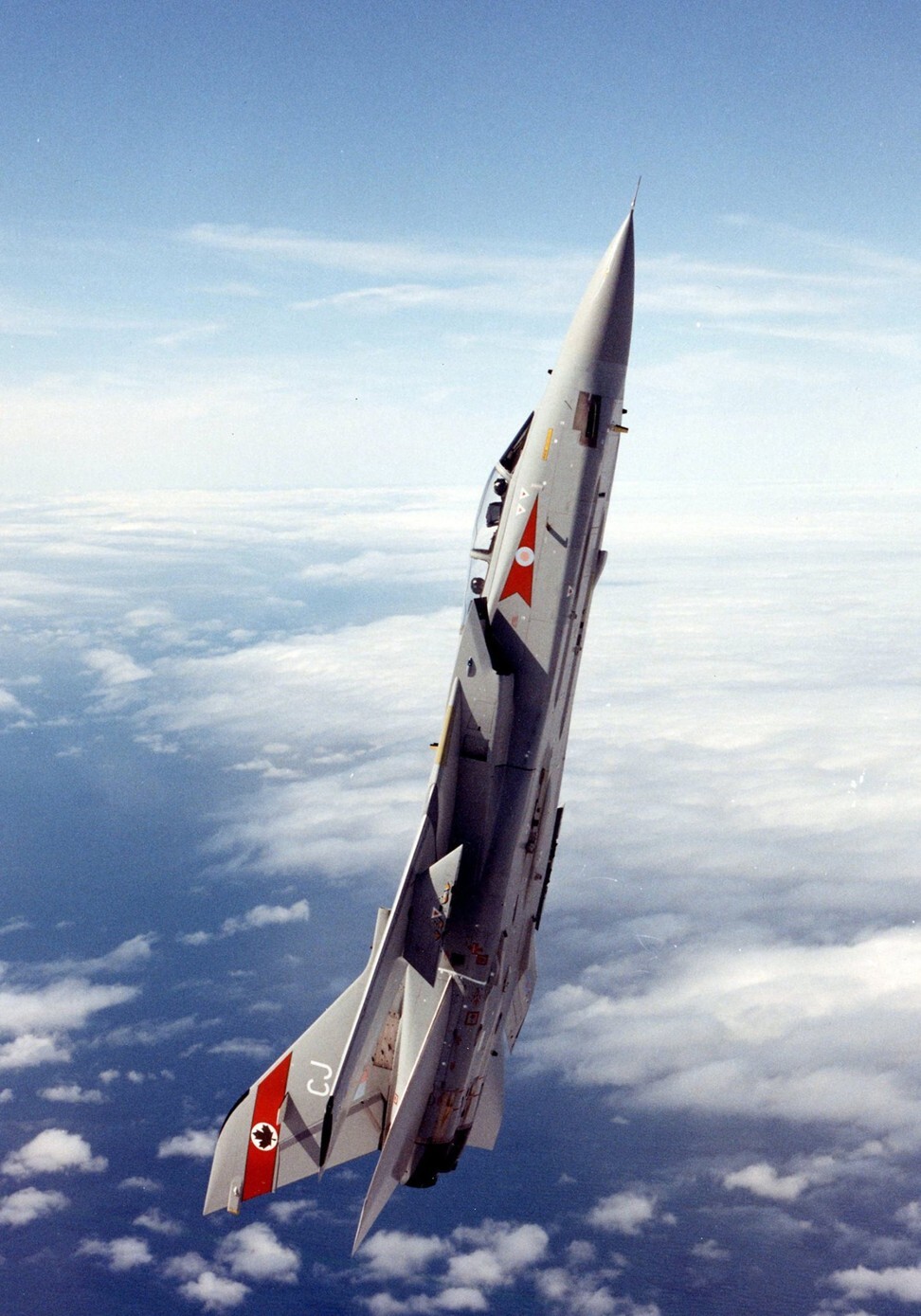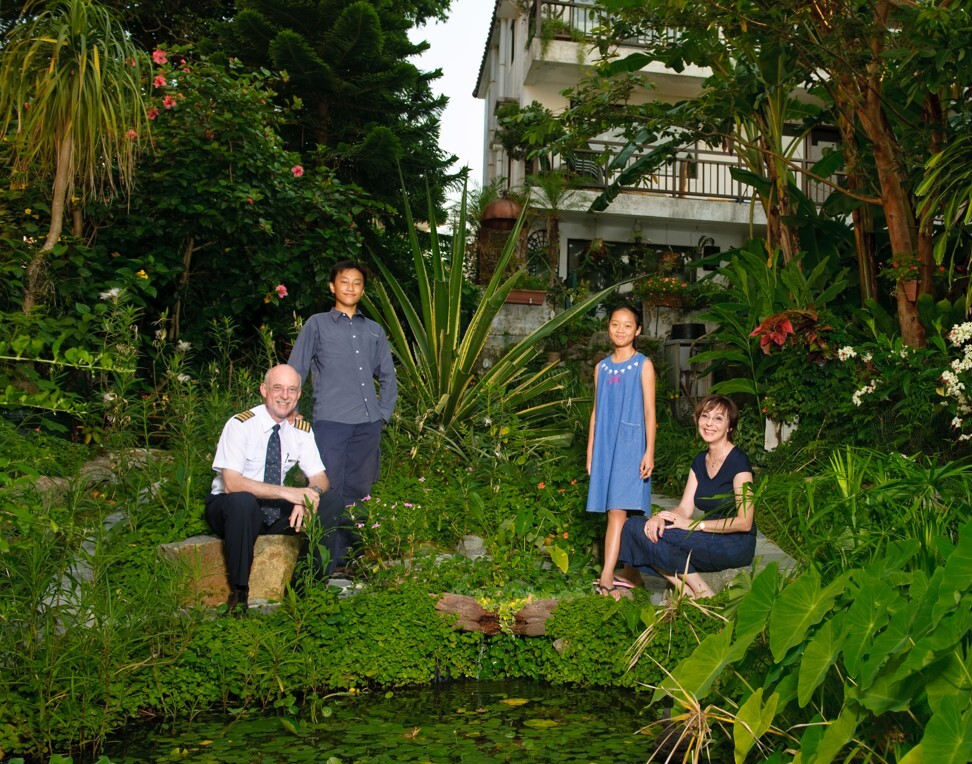
How an airline pilot became an environmentalist, and the death threats that followed
- David Newbery knew he wanted to be a pilot when he was five years old, and was airborne by the age of 13
- Now he’s hung up his flying boots, he dedicates his time to concern group Friends of Hoi Ha and the Save Our Country Park alliance

There and back again: I was born in Plymouth, in the south of England, in 1955. My father was a primary-school teacher. He was in the air force during the war – as ground crew – and ran an air cadet organisation. From the age of five, I used to tag along and knew I wanted to be a pilot.
When I was 10, we emigrated to Sydney, Australia, under the £10 migrant scheme. It was a five-week journey by sea through the Mediterranean and the Suez Canal, stopping in Sri Lanka. My father was appalled by the education system in Sydney, which was very regimented. So, after a year we returned to the UK and he got a job teaching in Exeter. My brother and I went to a grammar school, Hele’s School, and I joined the Air Cadets.
Sky high: I was 13 when I first got airborne on a primary glider – a simple A-frame with an open seat and a Y-shaped bungee cord and hook on the back. Half a dozen guys heaved on the cords and you were shot into the air. Not long after that, I got flying experience at a local airport, in the back of a Chipmunk, a two-seater, single-engine plane with a propeller.
When I was 16, I was able to do a gliding course and got solo on that. All these experiences were free through the cadet course. When I was 17, I applied through the Royal Air Force (RAF) for a flying scholarship. It allowed me to go to a civilian flying school and they took you up to a pilot’s licence. I learned to fly before I could drive.

Ups and downs: After my A-levels, I applied to the RAF for a university cadetship. I studied environmental sciences at the University of East Anglia, which in 1973 was ground-breaking stuff. In my spare time, I was a member of the Cambridge University Air Squadron and ran the hot air balloon club. On my last landing, I accidentally landed in an industrial greenhouse – it made the noise you’d expect – but the farmer was quite nice about us landing among his tomato plants.
After I graduated, I joined the RAF College Cranwell, did 14 weeks of officer training, and then basic and advanced flying training on the Gnat (fighter plane), which felt like a jet-powered roller skate. One time when we were coming in to land, myself and my instructor had to eject when the engine failed.
Then I went to a tactical weapons unit where I flew Hunter aircraft and practised air-to-ground gunnery, firing cannons and rockets and dropping practice bombs. We also learned to fly in close tactical formation. We did a lot of low-level flying around Wales and Scotland, which was the best fun ever. I’ll never forget the A5 pass in Wales – the valley is narrow and drops away to a cliff. You approach at about 450 miles an hour and turn upside down into the valley. It was fantastic.
May the force be with you: After the course, I chose to fly a Phantom, which is a heavy, fast aeroplane. My job would be to stop the nasty Russians bombing my mum rather than drop bombs on people, which I always thought was morally more defensible. In 1979, I was posted to Leuchars, on the east coast of Scotland. The ethos was work hard and play hard and everyone drank to excess. It was a pretty wild life, a hell of a lot of fun.
It was there that I met Nicola, a bilingual secretary, who became my wife. She was fluent in French and had been working in Paris at the OECD (Organisation for Economic Cooperation and Development). She came to visit her best friend, who was married to a navigator on the squadron. She went to Geneva and we had a long-distance courtship.

I was posted to the Aeroplane and Armament Experimental Establishment, at Boscombe Down (in Wiltshire), where my job was to put the test pilots’ words into manuals. After that I was posted to Coningsby, east of Lincoln, and another Phantom squadron. Nicola and I married in 1982 and she trained to be a teacher. We spent 10 years in Lincoln and I ended up as a tactics instructor on the Tornado F3. We tried to have children and went through IVF several times, but it didn’t work.
Cleared for departure: In 1993, I’d been in the air force 20 years and decided it was time to leave. It’s called the 1638 point – 16 years in the air force or until you are 38, at that point you could leave with a pension. I’d been flying fast jets for a long time and felt I was getting a bit complacent. There were occasions when I did things I was convinced were safe but on the way back I thought if I saw one of my students do that they wouldn’t be on the course any more. It was time to give it up.
There was a well-trodden path between coming out of the air force and Cathay Pacific, so I took that route. We arrived in Hong Kong in 1994 and rented a flat outside Sai Kung. I joined the union straight away.
We’ve got past the personal threats. People have realised we are not out for commercial gain. We’ve earned a little bit of respect.
I learned to fly my first big aeroplane, the TriStar, into Kai Tak Airport, which was challenging and fun. Because I was a trainer in the air force, I ended up being a trainer here and a training first officer. When I got command, in 2001, I became a check and training captain.
I work with the Royal Aeronautical Society in London. They gave me a fellowship and I’m still working with them on their airlines training group. I was on the Cathay Pacific union committee for some bad years. I thought I might be one of the 49ers (Cathay pilots who were sacked during an industrial dispute in 2001), but I wasn’t, and I did two spells as president of the Hong Kong Airline Pilots Association.
Park life: We applied in February 1995 to adopt and at the end of the year along came Jacob, a Mother’s Choice baby. He was three months old. Nicola had been walking in Hoi Ha, in Sai Kung Country Park, and thought it was beautiful, so went back and found a three-storey village house to rent. We bought the house just after Sars (severe acute respiratory syndrome), and the garden that goes down to the sea. Five years later we adopted our second child, Amy. She was three years old.

The Hoi Ha marine park was set up in 1996. I’d always kept an interest in environmental matters and could see they weren’t managing the park well. There was no overall control, they were still allowing commercial fishing and hadn’t got any rapport with the local people. They were totally reactive and had no vision. I wrote a paper and sent it to the Legislative Council, and we were asked to present the paper to the Legco panel on environmental affairs, which caused a few ripples. Nicola got involved as well, and together we set up Friends of Hoi Ha as an NGO to advocate for increased protection for the marine park.
Green politics: You can’t start environmental work without becoming political. When you factor in issues such as planning, the small-house policy and the accountability of representatives, it’s tricky. In the early days, we got nasty reactions – we had the car vandalised and death threats.
Now we have done it for so long, we’ve got past the personal threats. People have realised we are not out for commercial gain. We’ve earned a little bit of respect. Nicola and I make a good team because we are good at different facets. I tend to write the papers and letters and Nicola proofreads them and runs the Facebook page and is good at getting people involved.
I recently turned 65, so I’ve hung up my flying boots after 26 years with Cathay Pacific. Our home and work are in Hong Kong, so we plan to stay here and spend some time at our house in France. There’s a book to be written about the biodiversity of Hoi Ha.